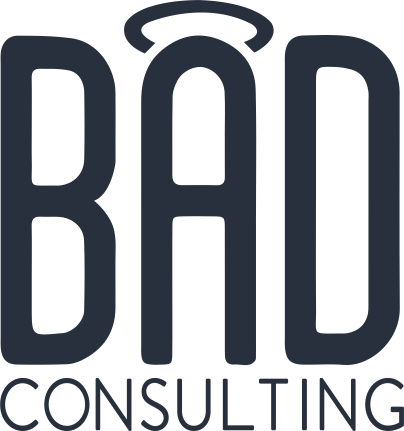Client boundaries are hard. It’s hard to know when you are asking for the right things and then it’s hard to enforce those boundaries when the client tiptoes through the tulips while you’re depending on them for a paycheck.
The older I get, the more likely I am to say, “This is not working for me.” Not necessarily to the client’s face. I’m a recovering people pleaser, but seriously, I have made loads of strides to get the kind of life I want despite that.
With that in mind, I wanted to think through how to do this better in the future. Is there a better way to do that than writing a public blog post on my company website? Probably. But I like a challenge. So let’s talk more about boundaries and why they are good for you.
You’re not asking too much if the boundaries are what you need to do the job
If you’re asking for all blue M&Ms in a crystal bowl, yeah, you’ve gone mad with power. But can I sit next to you and take notes? I feel like it would be super educational.
Asking for approvals or background information by a certain time? That’s completely acceptable. And I think it’s even okay if there’s a consequence when they don’t respect that kind of boundary. However, you have to be willing to follow through on that consequence.
My daughter has been in full feral toddler mode, so the nurse at my pediatrician’s office (I call her St. Ruth, the Patron Saint of Neurotic Mothers) suggested if-then statements. So I find myself using them A LOT. “If you pull my hair, then you will have to get down off my lap.” I now have to follow through on this threat, and sometimes, that leads to the feral toddler screaming… A LOT. But it’s temporary and she knows that the next time I give her that if-then statement, I mean it.
Your client is your feral toddler. There may be screaming, but it will be temporary. And if it’s not temporary, find a new client. Easier said than done, I know. However, that kind of abuse when you’ve been up front with them about expectations should never be tolerated.
You’re not asking too much if it balances your life
Let’s be honest: I didn’t go into this type of work to be working all the time. I got into it because of the flexibility and ability to live a fulfilling life both personally and in business.
I only schedule meetings during my daughter’s nap time. This is a hard boundary I try to uphold, although I bend it in very specific situations. Do you know the number one reason why I have this boundary? Meetings are not productive when you have a feral toddler demanding another episode of Ms. Rachel or throwing a Lego at my head (she has impressive aim). So when a client says, “Oh but I’d love to have your daughter on the call,” I politely decline because it’s in no one’s best interest to have me constantly interrupted.
Balance isn’t about having everything up in the air at all times. Sometimes it’s about being able to focus on one thing at one time and really giving it your all. It’s totally understandable to ask for that from your clients and expect them to respect that.
You’re not asking too much if it will make you joyful
There is a real reason why I’m focusing on the word “joy” in this section rather than the word “happy.” Happy can be fleeting and superficial. Joy is more long-lasting and requires some level of work to maintain. Joy makes you feel more accomplished than happy does. If you disagree with those definitions, I’d love to talk more about it, but for the sake of this post, that’s how I’m defining the two terms.
So back to the issue at hand…
You have one life. Work should bring you joy or else you really need to change something. Hopefully that change just needs to be a boundary, but there is always the chance it should be a complete upheaval. But working in tiny boundaries and seeing if they are getting you closer to joy is a good idea. If not, then take a harder look at what exactly is going on.
When possible, put your boundaries into your contract with a client. For example, I put my working hours into contracts to set the expectations with clients as to when they can expect immediate responses and when they may have to wait (unless, of course, it’s an emergency). Having them written down gives you something to point to when (because it’s not if, it’s when) they try to creep past your boundaries.
Stand firm and know you’re doing what’s best for you and for how you want to spend your life. And in the end, it will lead to you giving your absolute best to your clients, which is a big win all around.

